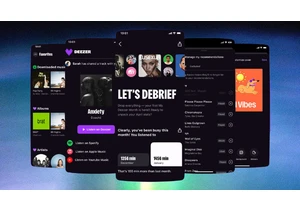I’m not sure who first compared ChatGPT to Cliff Clavin, the garrulous mailman/barfly from TV’s Cheers. It’s so an apt comparison that many people probably came up with it independently. Cliff did know a lot of stuff—after all, he was a Jeopardy almost-winner. Yet he was also a blowhard who didn’t seem to realize when he was speaking outside the bounds of his expertise. If you were paying attention, you knew that his seeming level of confidence was unrelated to the value of what he had to say.
Even as AI companies have managed to reduce their chatbots’ tendency to hallucinate, a certain degree of Clavin-ism has remained endemic to the category. But I’ve been playing with a new ChatGPT feature called “deep research,” which OpenAI announced last week. Instead of just being glib and eager to please, it weaves together facts and analysis into results with real substance. It’s not perfect, but it ranks with Google’s NotebookLM among the most impressive AI research tools I’ve tried. I don’t believe I’ve encountered a single hallucination in the tens of thousands of words it’s generated in response to my queries thus far.
At the moment, taking advantage of deep research requires deep pockets: The feature is debuting as part of ChatGPT Pro, which costs $200 a month. (I treated myself to a one-off upgrade for February to try it out—fingers crossed that Fast Company reimburses me.) If further testing goes as expected, OpenAI says, it will come to the $20/month ChatGPT Plus in a month or so. Once it does, I expect to use it frequently.
OpenAI’s blog post about deep research offers background on how it works, accompanied by charts showing its performance in various AI benchmarks. In use, what it feels like is a new kind of chatbot that actually does its homework. Far less dependent on a hermetically sealed LLM than most, it comes up with answers to questions in something closer to the way a human research assistant would, by consulting sources around the web in real time and synthesizing them into a cohesive whole. It’s a much more fleshed out, immediately useful example of agentic AI than Operator, another recently introduced ChatGPT feature that’s able to trawl the web on its users’ behalf.
By human standards, deep research does its work swiftly, but it’s hardly instantaneous: OpenAI says to expect the process to take 5 to 30 minutes per query. As it chugs away, it usually displays a running list of notes. For example, following a request I made involving fast-food history, it noted “Searched for McDonald’s number of locations in the 1960s.” Once in a while, these snippets are mystifying non sequiturs: At one point, it told me “If necessary, I will escalate to HR for guidance.” Overall however, they make the feat of generating AI text feel less like a magic trick and more like a computational process we mere mortals might comprehend—a welcome change from AI’s often opaque nature.
I threw a bunch of projects at deep research, such as writing a competitive analysis of the market for image editing software, explaining how mechanical watches work, comparing instant-photography technologies from Polaroid and Kodak, and chronicling attempts to suppress free speech in the U.S. from 1900 to 1950. In every instance, it came back with detailed responses full of well-chosen facts and crisp analysis, on a different plane of readability and quality than standard AI bot fare. It also provided Wikipedia-like citations for its work, a boon for full disclosure and an aid to further reading on a subject.
Impressive though deep research is, certain types of requests revealed its weak spots. As with most generative AI bots, it has a relentlessly positive attitude that gets in the way of anything requiring critical appraisal: I tried to get it to be more blunt by asking about the most forgettable pop culture pap imaginable, and it always insisted everything was a cult favorite. And while OpenAI touts the feature as being able to provide “hyper-personalized recommendations on purchases that typically require careful research,” the more I knew about a product area, the less impressed I was by its advice. Its suggestions of cameras for street photography, for example, were muddled by some prices that were way, way off. And when I asked it about tablets capable of replacing a laptop, it waxed enthusiastic about the 2022 iPad Pros—apparently unaware that Apple replaced them last year.

Thanks to the feature’s running notes and citations, some of its other current limitations are obvious. For instance, it often tried to read sources that might have been valuable—such as Consumer Reports—and gave up because they were paywalled. It also doesn’t seem to perform what I would consider truly dazzling feats of online derring-do, such as fishing material out of obscure PDFs salted away in the Internet Archive’s many nooks and crannies. OpenAI’s blog-post announcement mentions expansion plans that encompass “specialized data sources” and “subscription-based . . . resources,” implying that deep research could get meaningfully better without requiring foundational advances in its AI.
Oh, and one other thing: It kept asking me if I’d like its answers to include charts and diagrams. I always said yes, but it never provided any. It would be nice if it eventually got this option it mistakenly believes it already has.
In 1984, the famously demanding technologist and visionary Alan Kay deemed the original Macintosh to be the first personal computer good enough to be worth criticizing. Even with its current rough edges, deep research might be the first general-purpose AI-enhanced research tool to clear that bar—both a breakthrough right now and, with any luck, a preview of even better things to come.
You’ve been reading Plugged In, Fast Company’s weekly tech newsletter from me, global technology editor Harry McCracken. If a friend or colleague forwarded this edition to you—or if you’re reading it on FastCompany.com—you can check out previous issues and sign up to get it yourself every Wednesday morning. I love hearing from you: Ping me at hmccracken@fastcompany.com with your feedback and ideas for future newsletters. I’m also on Bluesky, Mastodon, and Threads.
More top tech stories from Fast Company
OpenAI shouldn’t accept Elon Musk’s $97 billion bid to buy it
The eye-popping bid is too cheap to be taken seriously. But with Musk near the Trump White House, what happens next is anyone’s guess. Read More →
What exactly is the point of the AI Action Summit?
As representatives convene in Paris this week to discuss the future of AI, tech companies are moving beyond discussion and taking decisive action. Read More →
How Apple could work with DeepSeek to pull ahead in the AI race
DeepSeek made American tech giants seem vulnerable, but it could be a boon to Apple. Here’s why. Read More →
This website combines Wikipedia and TikTok to fight doomscrolling
WikiTok users can swipe through an endless stream of Wikipedia article stubs, discovering random facts and interesting information along the way. Read More →
Roblox joins $27 million industry nonprofit to support online safety
The gaming platform says it’s part of its ongoing work to promote safety for kids and others users. Read More →
Meta’s AI randomly tried to throw a weird party for me—that I never asked for
After I made a quip on Facebook about a Super Bowl ad, Meta’s AI curiously created a party invitation for me—and Puppy Monkey Baby. Read More →
Login to add comment
Other posts in this group

If real Easter eggs aren’t your thing this weekend, you may find hunting for digital ones more enjoyable. And there are some cool ones to find at your fingertips, provided you have an iPhone or Ma

With music streaming, users have gotten used to being at the mercy of algorithms. But French music streamer Deezer is making it easier for its subscribers to make the algorithm work for them.

Trying to get from point A to point B? If only it were that simple! With any manner of travel these days, you’ve got options: planes, trains, buses, ferries, and beyond. And finding the best

When Twitter cofounder and Medium founder Evan “Ev” Williams was planning his 50th birthday party, he didn’t know who to invite. Having spent more of his life building and scaling tech

If you thought you’d heard the last of the viral “Apple” dance, think again. The TikToker behind it is now suing Roblox over its unauthorized use.
Last year, during the height of Brat su

A Wall Street Journal report this week gave an extensive look into how Elon Musk, the

Netflix fared better than analysts anticipated during the first thr
